Mathematics Programme
The design of the Mathematics curriculum at Dunman High School (DHS) is guided by the Ministry of Education’s Teaching and Learning Guide and anchored in the DHS Total Curriculum Framework.
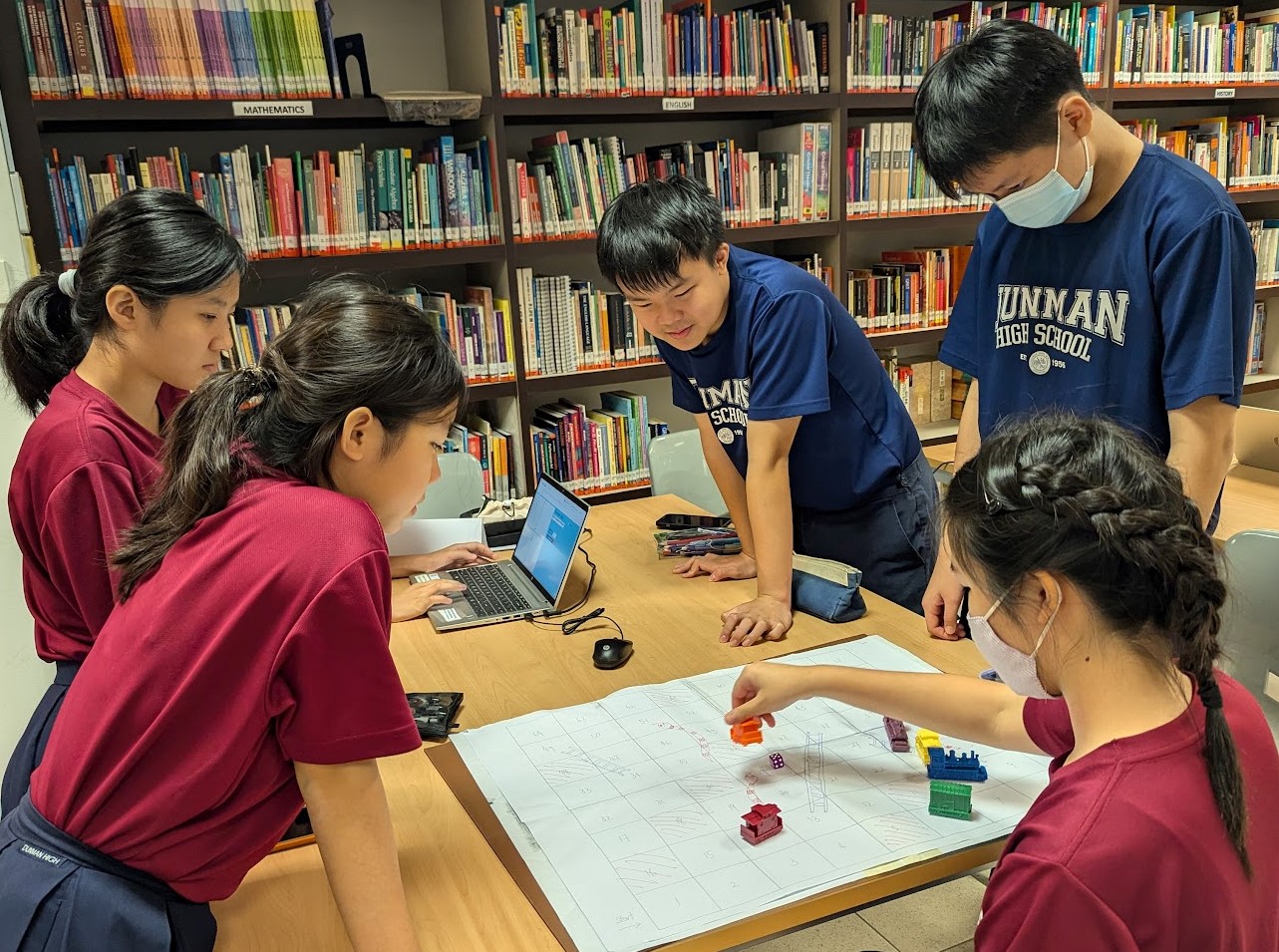
Curriculum
Mathematics plays a pivotal role in the advancement of numerous disciplines and underpins many of today’s innovations and future solutions. It enables us to model and understand real-world phenomena — such as consumer behaviour, population dynamics, and disease outbreaks — and to create modern technological solutions, including animated films, mobile applications, and autonomous vehicles. It also enhances productivity, supports strategic decision-making, and strengthens cybersecurity through tools such as business analytics, academic research methodologies, and encryption technologies.
At DHS, in line with our mission to nurture “Role Models of Learning, Leaders of Honour, and Pillars of Society,” we believe that Mathematics education should empower students with the knowledge, skills, and thinking capacities needed to thrive in the future economy and society. By developing logical, critical, and analytical thinking, students are equipped for lifelong success and are well-prepared to contribute to national initiatives such as Singapore’s Smart Nation, where computational and mathematical literacy is essential.
Our Mathematics curriculum is designed with these goals in mind and spans a seamless six-year Integrated Programme (IP) for students joining us after PSLE. For students entering DHS via the Joint Admission Exercise, the Senior High Mathematics programme is designed to integrate them smoothly with IP students, ensuring continuity and coherence in learning.
Content
|
Subject / Programme |
|
|---|---|
|
Junior High Math |
In the Junior High years, all IP students undertake Math 1 and Math 2, which together cover and extend beyond O-Level Mathematics and Additional Mathematics. This ensures a strong foundation for advanced study. Students who show exceptional aptitude in Mathematics may opt to study Math 2 at the D2 level, where they delve deeper into selected topics, challenging themselves with enriched content and greater conceptual depth. |
|
Senior High Math |
In Senior High, aligned to A level curriculum, students choose between H1 or H2 Mathematics based on their interests and university aspirations. H1 Mathematics supports students inclined toward pursuing business and social science disciplines, while H2 Mathematics is more suited for those targeting science, technology, engineering, and mathematics (STEM) fields. Students with a strong passion and readiness for the subject may further opt for H2 Further Mathematics and/or MOE-H3 Mathematics, offering them deeper exposure and preparation for higher-level studies requiring more in-depth mathematical knowledge. |
Enrichment and Competitions
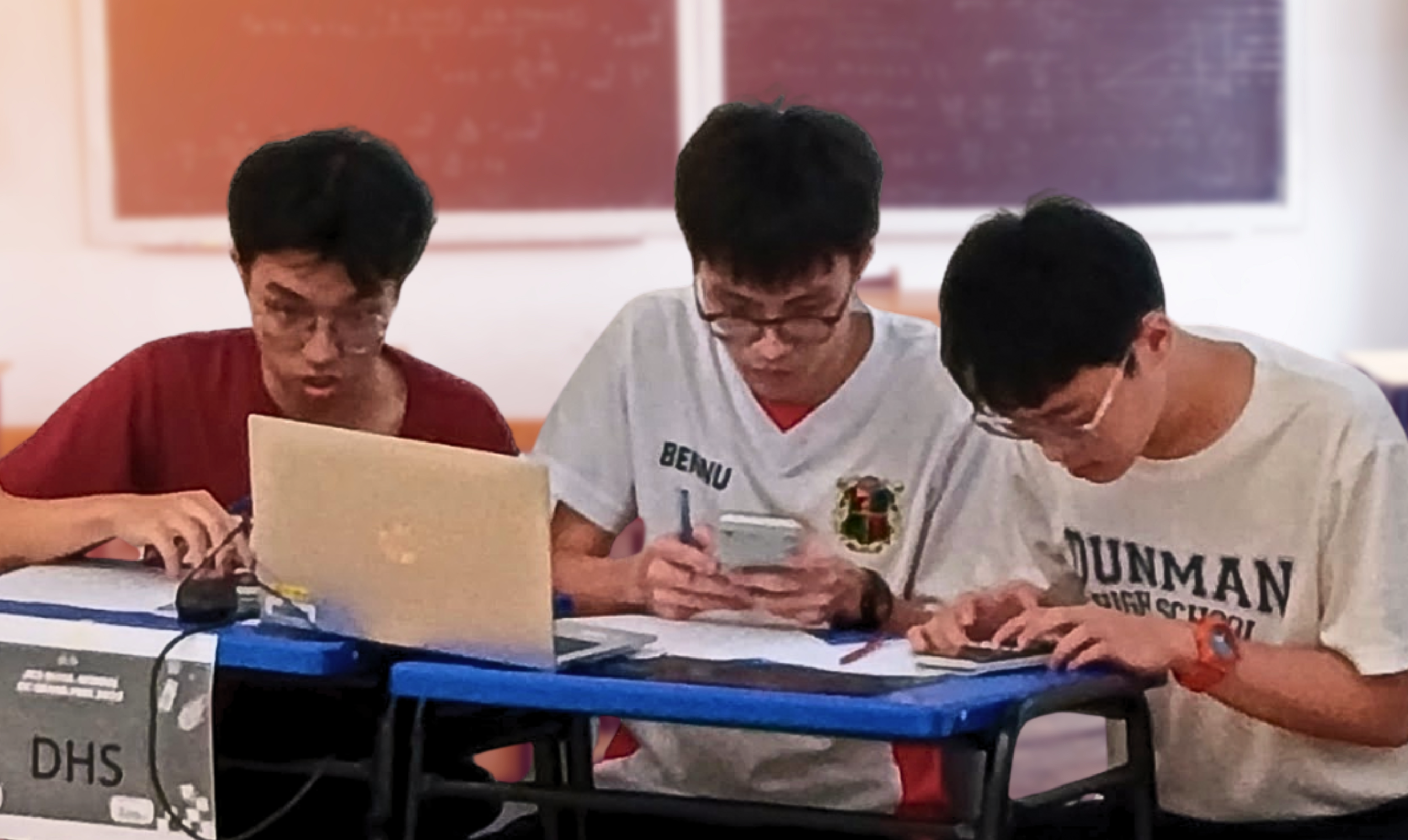
DHS students benefit from collaborations with organisations such as the Gifted Education Branch, the Singapore Mathematical Society, and international partners. These partnerships provide access to enrichment programmes and competitions including the Singapore Mathematical Olympiad, American Mathematics Competition, and the Singapore Mathematical Society Project Festival, allowing students to pursue their passion and stretch their potential. Students also have valuable opportunities to develop practical financial literacy skills and actively participate in engaging, real-world problem-solving through an interactive math trail experience.
Delivery
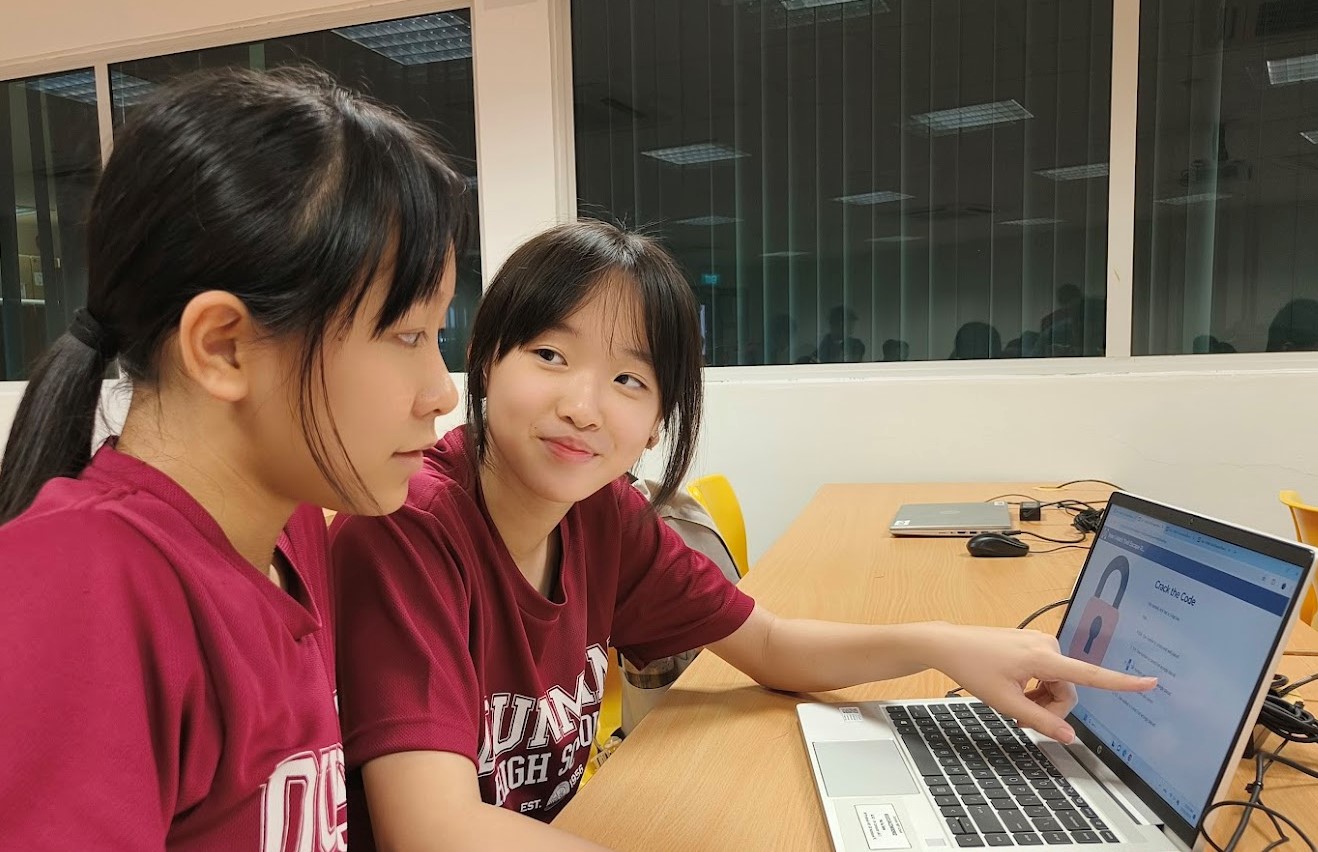
Readiness, Engagement, and Mastery
Our curriculum delivery is centred around three pillars:
-
Readiness: We consider students’ profiles, prior knowledge, and learning environments to tailor differentiated experiences.
-
Engagement: Instruction is driven by a blend of activity-based learning, inquiry-based learning, and direct instruction. Students experience discovery learning, open-ended problem solving, and collaborative group work. Engaging tools such as games and real-life applications are integrated to maintain motivation and deepen understanding.
-
Mastery: Students consolidate and extend their learning through regular summaries, reviews, and practice. Emphasis is placed on ensuring all students — regardless of ability — are supported to grow, while those with a mathematical flair are challenged further to reach their full potential.
Our Mathematics curriculum emphasises both the discipline and utility of Mathematics. Students explore the nature and practices of Mathematics while also applying it as a problem-solving tool in authentic contexts.
The curriculum is underpinned by the philosophy of Teaching towards Big Ideas, guiding students to make meaningful connections across mathematical concepts and with other disciplines. A strong focus is placed on the development of 21st-century competencies, particularly critical and adaptive thinking, through regular problem-solving opportunities.
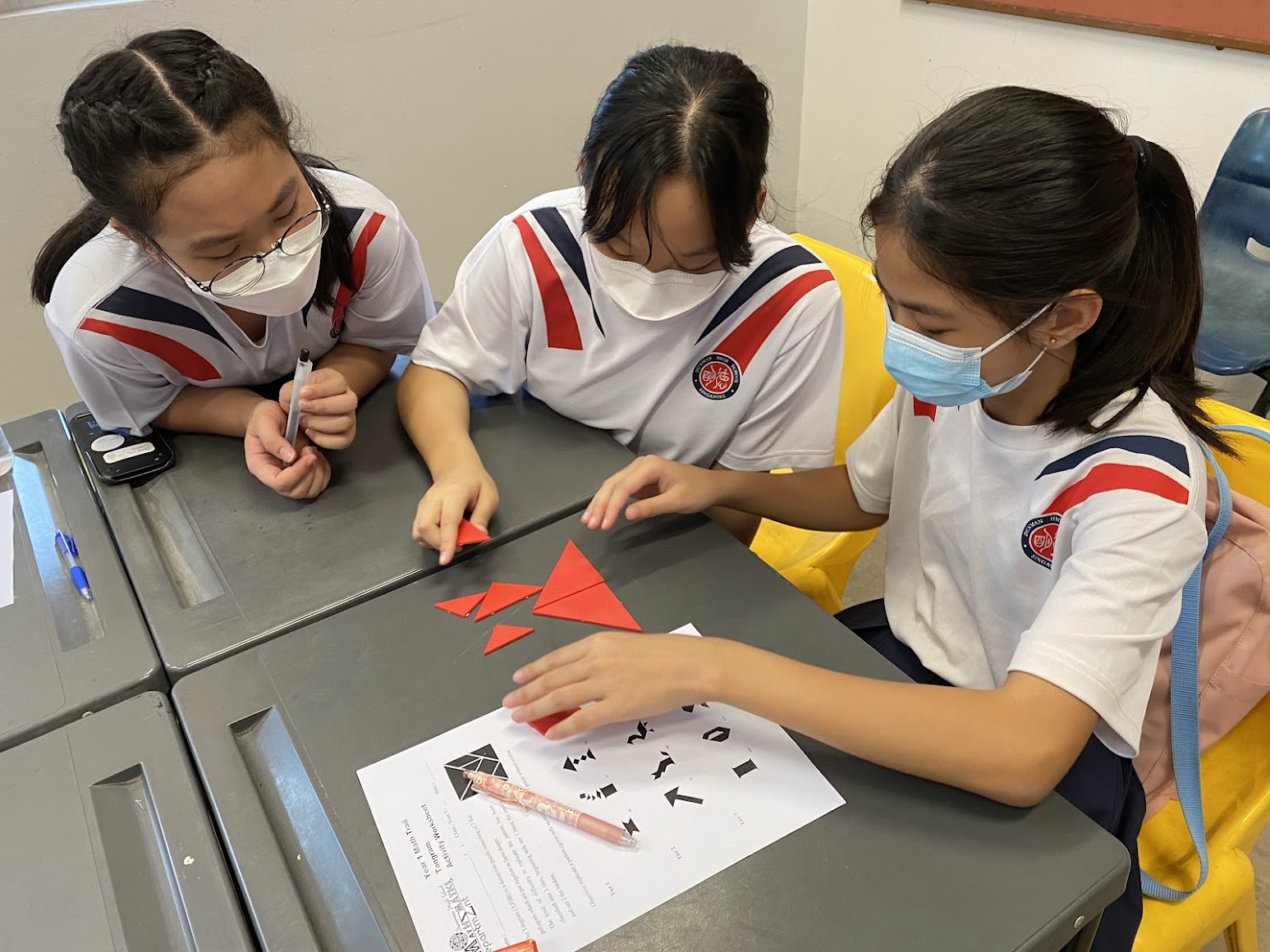
Students also engage in Mathematical Modelling, which involves analysing real-world problems, making assumptions, building mathematical representations, and validating predictions — deepening their appreciation and application of the subject.
Communication and collaboration are also key, and students are regularly encouraged to reason and articulate their mathematical ideas confidently, both individually and in teams, through various media.
Assessment
Assessment is an integral part of our teaching and learning process. We adopt a balanced mix of formative and summative assessments to evaluate learning outcomes and inform instructional strategies. Formative assessments offer timely feedback, empowering students to track their progress and take ownership of their learning.
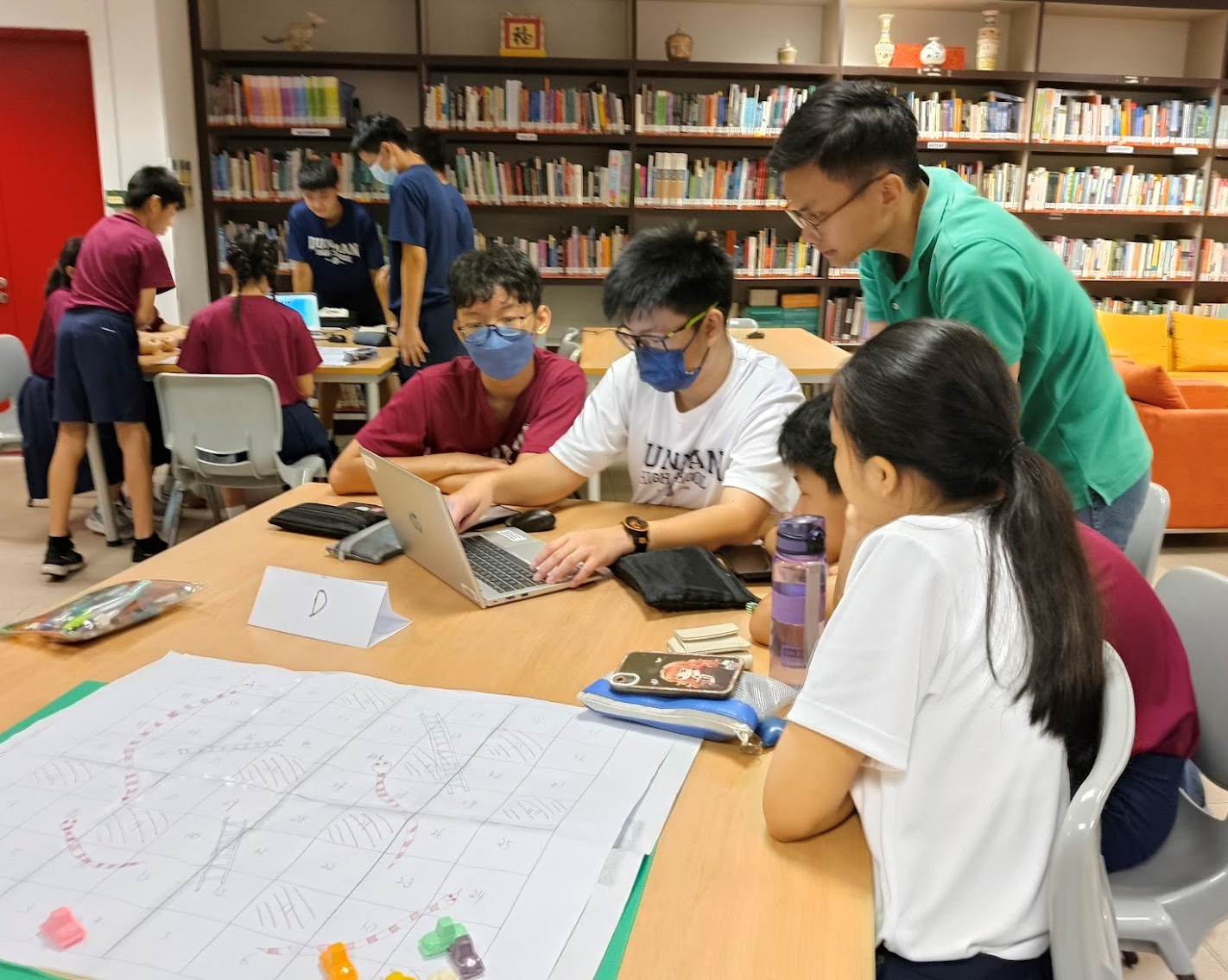
Not all assessments are graded, particularly formative tasks, which are used to identify learning gaps and guide interventions. Traditional written tests remain important, but students also undertake alternative assessments—especially at the Junior High level—including group projects, oral presentations, e-assessments, and authentic tasks.
All assessments are designed to be purposeful, appropriately challenging, and aligned with learning objectives, helping to foster confidence and sustain positive attitudes towards Mathematics.
Through intentional planning, thoughtful pedagogy, and robust support structures, our Mathematics programme aspires to nurture confident problem-solvers, critical thinkers, and collaborative learners — equipped to contribute meaningfully in a rapidly evolving world.

